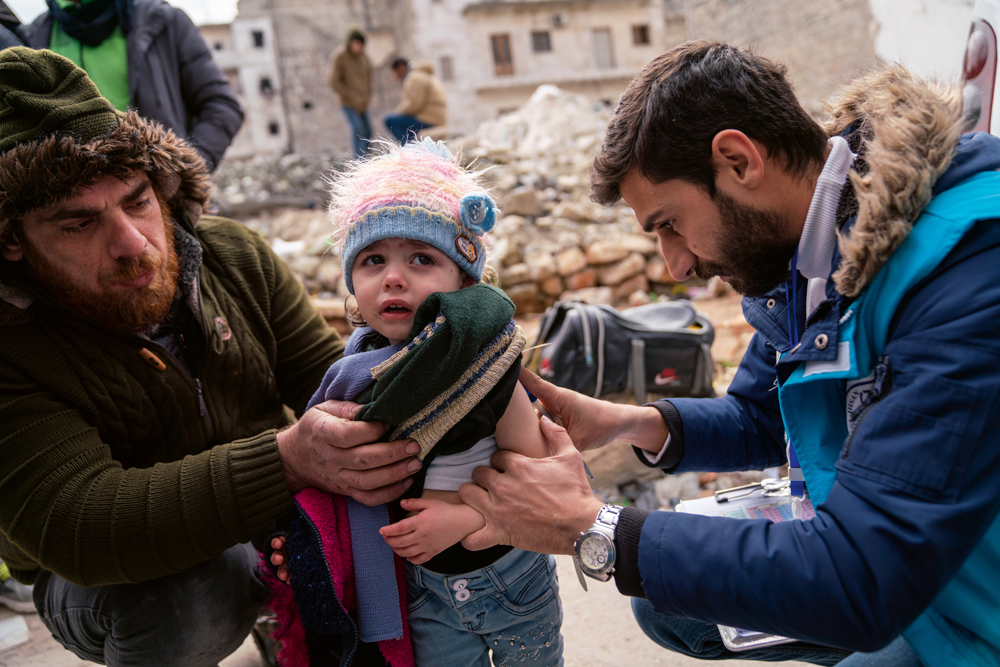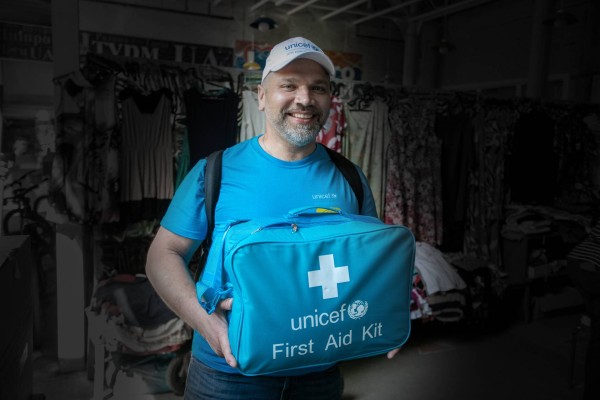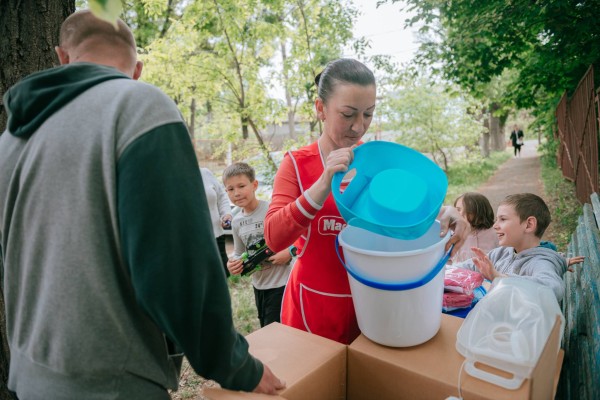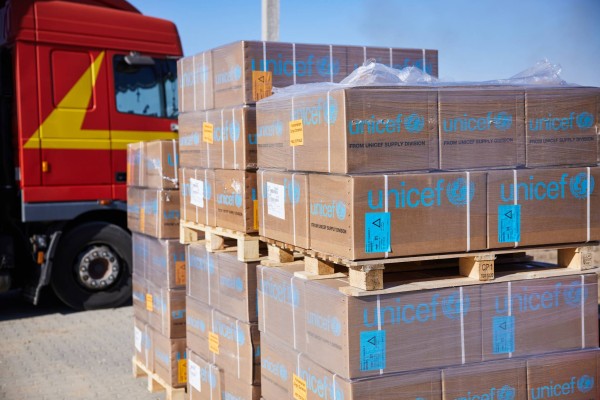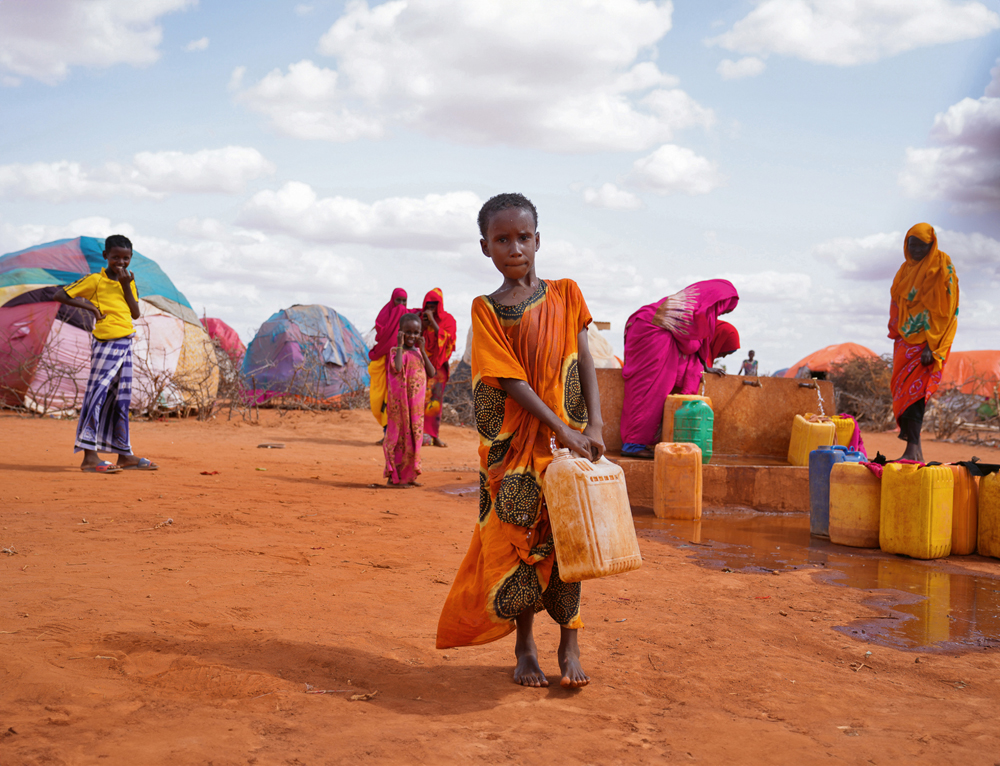In the context of conflict or disaster, children are the ones who suffer most. During emergencies and in humanitarian crises, they are particularly vulnerable to disease, malnutrition and violence. Children living in conflict zones are the most disadvantaged: they are more likely to be in extreme poverty, for example, or to be unable to attend school.
Emergency aid will always be essential
Unfortunately, there are always emergencies around the world that threaten children’s lives, even if they do not make the headlines. Therefore, our priority is to help children in emergency situations and to protect their lives as well as their rights, everywhere in the world.
When war, conflict or natural disasters threaten children’s lives by cutting off their access to food, shelter, social assistance and health care, UNICEF focuses on these children and their families to provide them with essential services for their protection and vital supplies to save lives and ensure that the rights of all children are respected. Our comprehensive emergency assistance covers all areas affecting children’s well-being, including nutrition, water and sanitation, education, child protection and health, including mental health.
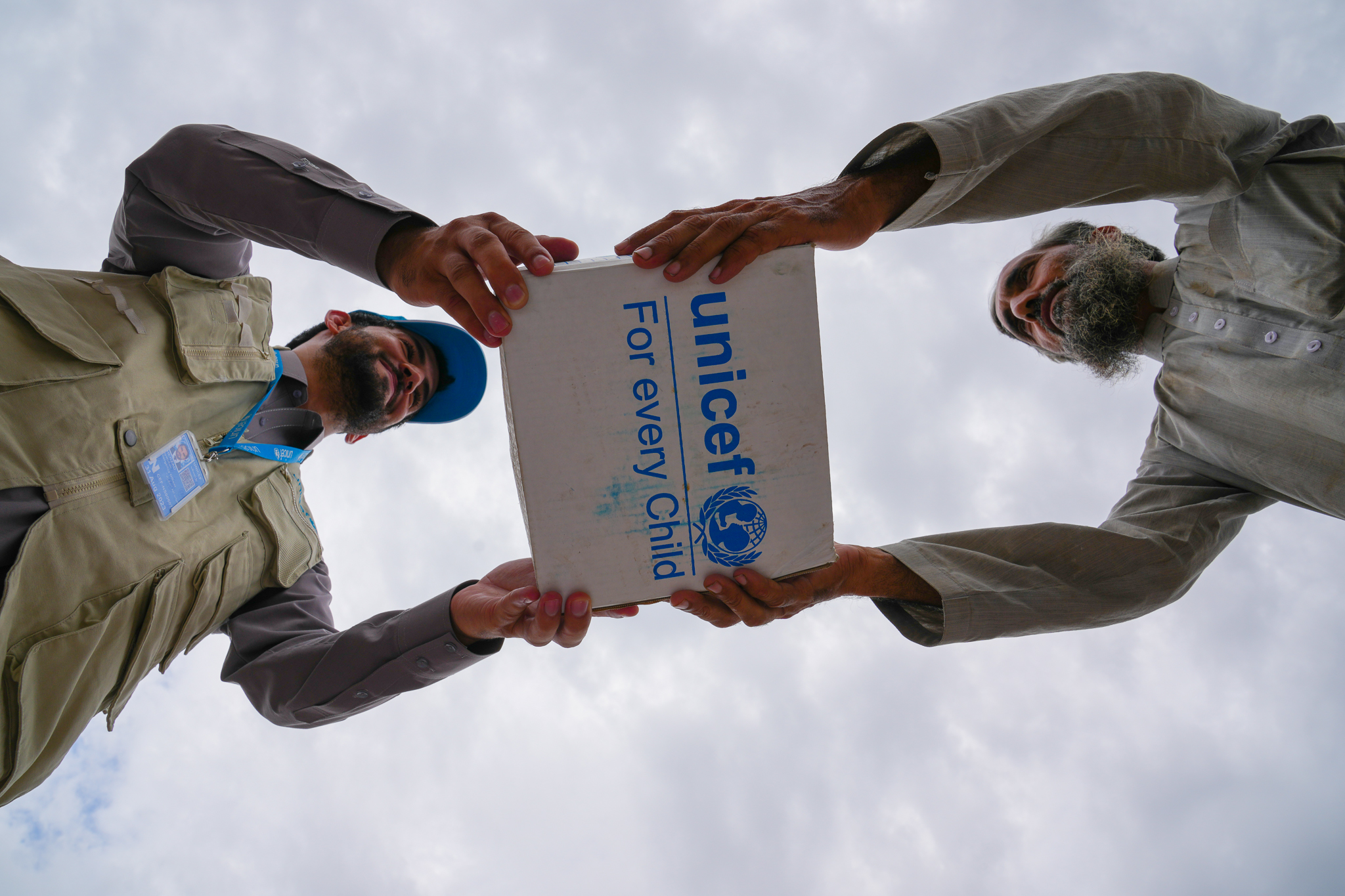
We provide
comprehensive and vital assistance
Our sustainable, long-term aid
Disaster prevention and the sustainability of our aid are also part of our priorities. We are on the ground before, during and after times of crisis and are continually working to develop new, sustainable and effective solutions that help people not only temporarily, but also in the long term. It is essential to take preventive measures even before a disaster strikes. This avoids every natural disaster automatically leading to an emergency situation.
By modernising water supply and sanitation systems, for example, we are helping vulnerable households not only in the short term, but also, and most importantly, in the long term. By doing so, we are also contributing to the development of the countries and regions affected. This means that our emergency aid is not limited to a simple response to crises, but requires the continuous involvement of our experts, in close collaboration with local communities and other organisations on the ground.
The children need your support
“UNICEF is on the ground in countries across the world, providing children with life-saving assistance during humanitarian emergencies. We’re strengthening the systems that children rely on […] and making those systems more resilient to climate shocks.”
Catherine Russell, UNICEF Executive Director

AFGHANISTAN
One-year-old Rana was suffering from severe acute malnutrition. In this photo, she is being cared for by the Deh Sabz mobile health and nutrition team, which UNICEF supports with nutritional supplies and products.

UKRAINE
Anya, 7, is on an evacuation bus at Kherson bus station. The destruction of the Nova Kakhovka dam at the beginning of June flooded many villages. UNICEF is providing essential supplies, particularly to people who have been forced to relocate.

YEMEN
UNICEF does not hesitate to be innovative. In Yemen, we are supporting more than 150 solar-powered water systems, which provide safe access to drinking water to 2.5 million people. These systems reduce the risk of children dropping out of school as well as the spread of disease. Moreover, they have a positive impact on the country’s development and economy.

SYRIA
Following the earthquakes in Syria, UNICEF is providing collective shelter, psychological first aid and recreational activities for children to help them express their feelings, cope with their losses, and overcome the trauma they have suffered.

SUDAN
While the conflict is still going on, UNICEF and the Federal Ministry of Health, with the support of Gavi (the Vaccine Alliance), are maintaining essential health services, including the vaccination of children. The latter is particularly important to prevent outbreaks of serious diseases.
